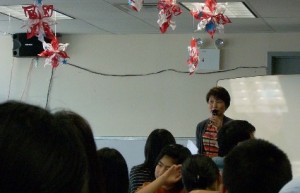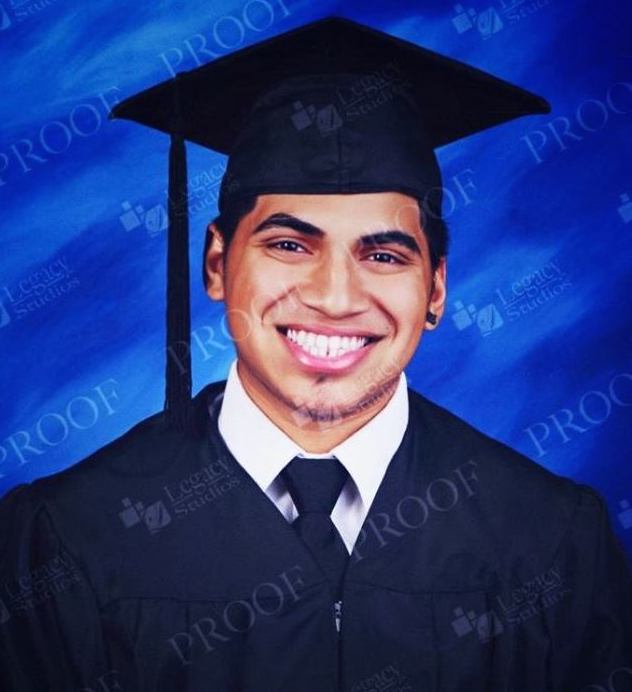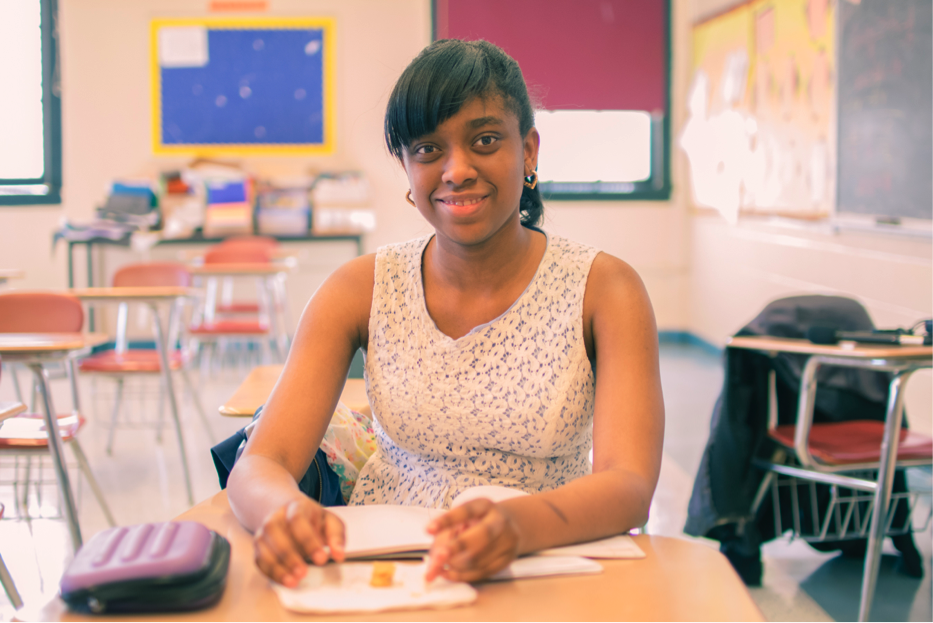Mina Yang considers herself only half a tiger mom.
A mother of two teenage daughters, she said she sent them to many classes starting in kindergarten: piano, swimming, dance and painting. She also made them go to Chinese school on the weekends until they were in 10th grade.
“Asian parents always want to do their best for their kids,” said Yang, who was born in Guangzhou and moved to Hong Kong before immigrating to the United States more than two decades ago. “For Chinese parents, whether you are selling vegetables on the streets or you are a Ph.D., you want a good education for your kids.”
Yang , who is in her late 40s, said she agrees to a certain extent with the authoritarian parenting style advocated by Yale law professor Amy Chua, whose best-selling book Battle Hymn of the Tiger Mother documented Chua’s strict and traditional Chinese-style parenting.

“I was very strict when they were young,” Yang said. “No TV for a week if they didn’t practice the piano.”
Just like Chua’s daughters, Yang’s two daughters are high-achievers. Her elder daughter, Victoria, 19, graduated from Stuyvesant High School, one of the city’s top public high schools, and is a second-year business major at Fordham University. Stephanie, 17, is in her senior year at Hunter College High School, another one of New York City’s elite public schools, and has just been accepted to Columbia University’s engineering school.
“My daughters are very self-disciplined,” said Yang, who studied computer information systems at Baruch College, and worked her way up the corporate ladder to become a manager of derivative operation at an investment bank in midtown. “They don’t really need my help.”
So she directed her spare energy to Hunter College High School’s Chinese American Parents Association, where she served as a co-president from 2008 to 2011. Chinese-Americans make up about a third of the entire student body, which includes roughly 1,200 pupils from grade 7 to 12. But traditionally, Chinese parents have a low participation rate in school events.
“Many Hunter students’ families live in Queens, and unlike most zoned schools, the parents don’t know as many other parents because the students come from all over the city,” said Yang, who lives in Little Neck, a suburban neighborhood in eastern Queens by the Long Island border, with her daughters and husband, an immigrant from Shanghai and information technology specialist. “Some of them also have language barriers, so it’s difficult for them to attend school events.” The school is located in Manhattan’s Upper East Side.
But the main reason is cultural. Although Chinese parents put a lot of emphasis on education, they shy away from getting involved in school affairs.
“Chinese parents think school officials and teachers are experts in education,” Yang said. “We respect all school policies. Parents have no business interfering.”
Chinese parents also have a low donation rate. The schoolwide parent-teachers association suggested an annual contribution of $1,200 per family to help pay for student clubs, athletics and upgrading science labs and classrooms. But in China, no donation is needed for public schools.
“Many Chinese parents don’t understand why they should donate money to the school, since it is a public school and they pay taxes,” Yang said. “There are a number of Chinese families are who are first-generation immigrants, and are not as wealthy as most of the American families here, so we can only encourage them to give whatever they can.”
Because the school administration does not understand the passive attitude of Chinese parents, Yang said it is her job to be the liaison between the school and Chinese parents to narrow the cultural gap.
“The PTA is frustrated,” Yang said. “I tried to let the PTA know that the Chinese parents are not selfish. They just need to better understand how the school system functions.”
Nancy Yuen, a former parent volunteer who founded an after-school Chinese language program and worked closely with Yang, said Yang’s superb communication skills have helped more Chinese parents understand the importance of family contributions.
“She is very patient,” Yuen said. “She is considerate and respects everyone. She is very comfortable to talk to and is never pushy.” Under Yang’s leadership, the donation rate of Chinese parents has gone up significantly.
“It is very hard to coordinate with the parents because everyone is so busy,” Yuen said. She has a full-time job and is busy herself. But she is always there at meetings and school events, and to speak on behalf of the Chinese parents.
Making the Chinese parents association more visible with higher parent participation has real benefits, Yuen said. “The school is also paying more attention to us.”
Hao Yang, a vice president at Hunter’s Chinese parents association, who is not related to Mina Yang, also praised the liaison’s efforts in bridging the school administration and the Chinese parents.
“Every year we have a big cultural banquet in Flushing and she brings the principal and school officials to Queens to meet the Asian parents,” Hao Yang said. “It is a big networking and fundraising event and always a big success.”
Mina Yang says the annual banquet provides a more casual environment for parents to interact with school officials.
“When the parents know more people in the school, they participate more,” Yang said.
Like many Chinese parents, Yang wants her daughters to be in touch with their Chinese heritage. But unlike many Chinese parents who want their children to become doctors or lawyers, she wants them to explore their own interests. Most importantly, she wants them to develop social awareness and engage in community service. Her elder daughter, Victoria, said she is inspired by her mother’s willpower.
“She would see opportunity in everything with the slightest potential,” Victoria said. “She loved starting projects and interacting with others to get it done. ” Victoria has walked in March of Dimes events and interned at a health clinic for two years. “It is hard not to be drawn by the positive energy that she gives off.”
Juggling a full-time job and raising two daughters, Yang said she has no time for stress and wishes to have some time off, which is why she stepped down from the co-president position after serving four terms.
But when asked what she will do with any free time, the first thing that came to her mind is helping others.
“I didn’t realize that helping people can bring me so much happiness,” Yang said. “In fact, this kind of happiness and friendship is much more rewarding. In fact, there are many Hunter parent volunteers who spend lot of their time helping the school do fundraising, spring auction and other PTA activities. They work much harder than I am. Their efforts and selflessness always touch my heart. The inspiration for me lasts for a lifetime.”



